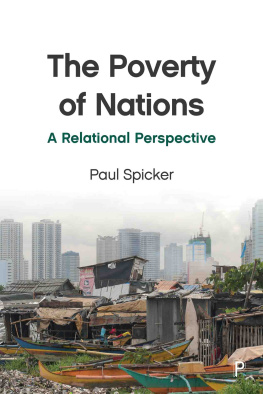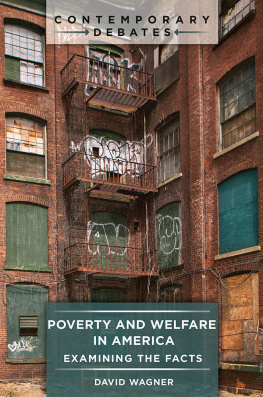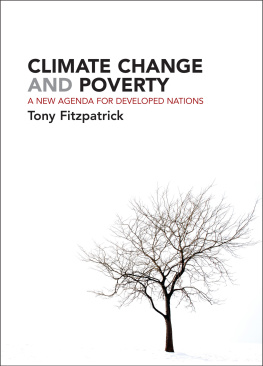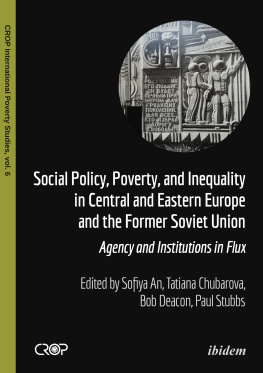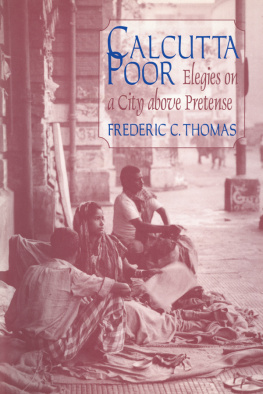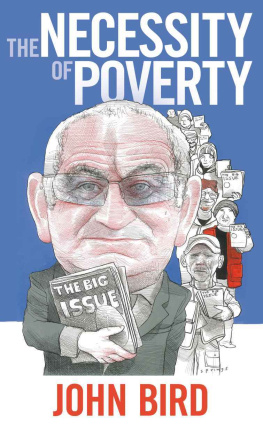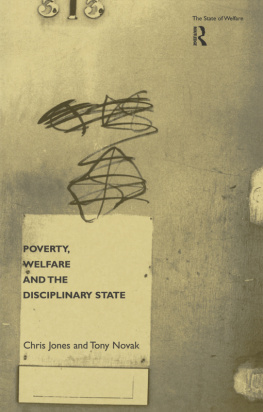Alice OConnor - Poverty Knowledge: Social Science, Social Policy, and the Poor in Twentieth-Century U.S. History
Here you can read online Alice OConnor - Poverty Knowledge: Social Science, Social Policy, and the Poor in Twentieth-Century U.S. History full text of the book (entire story) in english for free. Download pdf and epub, get meaning, cover and reviews about this ebook. City: Princeton, year: 2009, publisher: Princeton University Press, genre: History / Science. Description of the work, (preface) as well as reviews are available. Best literature library LitArk.com created for fans of good reading and offers a wide selection of genres:
Romance novel
Science fiction
Adventure
Detective
Science
History
Home and family
Prose
Art
Politics
Computer
Non-fiction
Religion
Business
Children
Humor
Choose a favorite category and find really read worthwhile books. Enjoy immersion in the world of imagination, feel the emotions of the characters or learn something new for yourself, make an fascinating discovery.

- Book:Poverty Knowledge: Social Science, Social Policy, and the Poor in Twentieth-Century U.S. History
- Author:
- Publisher:Princeton University Press
- Genre:
- Year:2009
- City:Princeton
- Rating:3 / 5
- Favourites:Add to favourites
- Your mark:
Poverty Knowledge: Social Science, Social Policy, and the Poor in Twentieth-Century U.S. History: summary, description and annotation
We offer to read an annotation, description, summary or preface (depends on what the author of the book "Poverty Knowledge: Social Science, Social Policy, and the Poor in Twentieth-Century U.S. History" wrote himself). If you haven't found the necessary information about the book — write in the comments, we will try to find it.
Progressive-era poverty warriors cast poverty in America as a problem of unemployment, low wages, labor exploitation, and political disfranchisement. In the 1990s, policy specialists made dependency the issue and crafted incentives to get people off welfare. Poverty Knowledge gives the first comprehensive historical account of the thinking behind these very different views of the poverty problem, in a century-spanning inquiry into the politics, institutions, ideologies, and social science that shaped poverty research and policy.
Alice OConnor chronicles a transformation in the study of poverty, from a reform-minded inquiry into the political economy of industrial capitalism to a detached, highly technical analysis of the demographic and behavioral characteristics of the poor. Along the way, she uncovers the origins of several controversial concepts, including the culture of poverty and the underclass. She shows how such notions emerged not only from trends within the social sciences, but from the central preoccupations of twentieth-century American liberalism: economic growth, the Cold War against communism, the changing fortunes of the welfare state, and the enduring racial divide.
The book details important changes in the politics and organization as well as the substance of poverty knowledge. Tracing the genesis of a still-thriving poverty research industry from its roots in the War on Poverty, it demonstrates how research agendas were subsequently influenced by an emerging obsession with welfare reform. Over the course of the twentieth century, OConnor shows, the study of poverty became more about altering individual behavior and less about addressing structural inequality. The consequences of this steady narrowing of focus came to the fore in the 1990s, when the nations leading poverty experts helped to end welfare as we know it. OConnor shows just how far they had traveled from their fields original aims.
Alice OConnor: author's other books
Who wrote Poverty Knowledge: Social Science, Social Policy, and the Poor in Twentieth-Century U.S. History? Find out the surname, the name of the author of the book and a list of all author's works by series.

